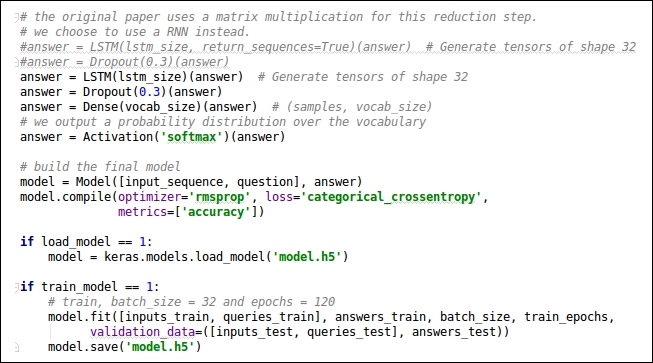The best approach
We have covered the entire concept that can help us implement the DMN-based chatbot. In order to implement this approach, we will be using Keras with the TensorFlow backend. Without wasting any time, we will jump to the implementation section. You can refer to the code for this approach using this GitHub link: https://github.com/jalajthanaki/Chatbot_based_on_bAbI_dataset_using_Keras.
Implementing the best approach
Here, we will train our model on the given bAbI task 1 dataset. First of all, we need to parse the stories and build the vocabulary. You can refer to the code in the following figure:

Figure 8.34: Code snippet for parsing stories and build vocabulary
We can initialize our model and set its loss function as a categorical cross-entropy with stochastic gradient descent implementation using RMSprop in Keras. You can refer to the following screenshot:

Figure 8.35: Code snippet for building the model
Before training, we need to set a hyperparameter. With the help of the value...

























































